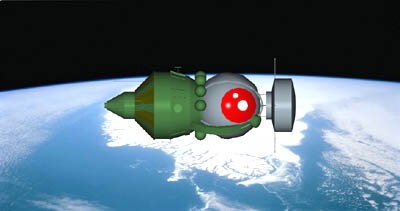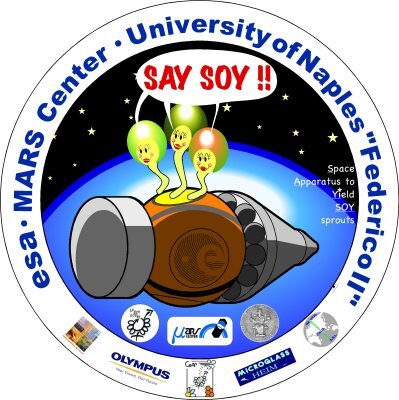New Education Fund members support student experiment
Four companies recently became the newest members of ESA's International Space Station Education Fund (ISSEF) after pledging their support to the SAYSOY student experiment. Looking at the effect of weightlessness on the growth of soybean seeds, SAYSOY is set to fly on the Foton-M2 mission at the end of May.
The four companies who have provided financial support for the SAYSOY experiment, Natural Technologies Italia S.r.l., Centro Analisi Palinologische, Microglass Heim S.r.l. and Olympus Italia, are all active in the fields of plant growth and cellular biology and are enthusiastic about supporting research and innovation in plant biology.
Capture the imagination

The ISSEF was established to help ESA in its aim of encouraging students from the ESA Member States to understand, study, and support science and technology in the future. The Fund receives contributions from organisations and companies within Europe, from fields such as space, technology, science, education and publishing.
The Fund supports the ISS Education Programme, through which ESA develops and distributes a range of teaching aids using Human Spaceflight as a tool to capture the imaginations of children of all ages.
Projects supported by the Fund include, the production and dissemination of 40 000 copies of the ISS Education Kit aimed at teachers of pupils aged 12-15 years and a series of DVD lessons covering scientific experiments filmed both in space by ESA astronauts and in classrooms on Earth.
The ISS Education Programme also supports the implementation of research experiments, initiated by university students, to be carried out on board the ISS, or on other carriers.
Soybean seeds in weightlessness

SAYSOY, or Space Apparatus to Yield SOYsprouts, is one such experiment prepared by a team of Italian botany students. The experiment, which investigates the germination of soybean seeds in space, will fly on ESA's Foton-M2 mission due for launch on 31 May 2005 from Baikonur Cosmodrome, Kazakhstan.
After the flight, the soy sprouts will be analysed to see if weightlessness has any negative effect on their nutritional value. If they can successfully be grown in orbit, soy seedlings could prove to be a valuable addition to the astronaut diet during long-duration missions.
Natural Technologies Italia S.r.l. (NTI) is a subsidiary of the English-based N.T. Group, a leader in the research, production and testing of biochemical products derived from natural molecules.
The Centro Analisi Palinologische (CeAP - Centre of Palynological Analyses) at the University of Naples Federico II is involved in botanical analysis, looking particularly at spores and pollen in honey and crop production.
Microglass Heim S.r.l is a leader in the promotion and distribution of laboratory facilities and equipment in southern Italy. Their products and services are widely used in the fields of cellular and molecular biology, immunology, microbiology, molecular diagnostics, biochemistry and chemistry.
Olympus Italia is part of the world-renowned Olympus Group, a leading manufacturer of professional opto-digital products. Olympus is a pioneer of key technologies in the fields of imaging and voice products, endoscopy, microscopy, bioanalytics and diagnostics.





